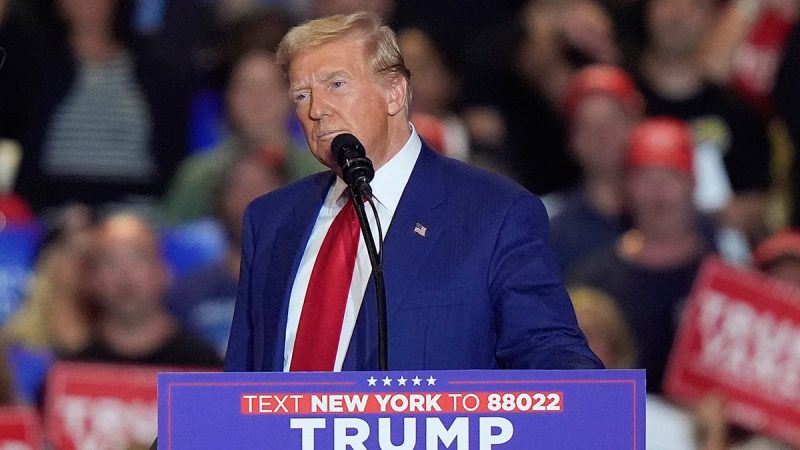In a recent announcement that took the political world by surprise, former President Donald Trump indicated that he would not make another run for the presidency in 2028 if unsuccessful in the upcoming election. This declaration, made during a campaign rally in Iowa, has sparked widespread speculation and commentary about the future of the Republican Party and the broader state of American politics.
Trump’s statement comes as no shock to those who have closely followed his career in politics. The former president, known for his bombastic personality and unconventional approach to governance, has kept the American public on edge with his unpredictable behavior. While Trump’s decision not to run again in 2028 may come as a relief to some of his critics, it leaves many supporters wondering about the future of the party he has come to symbolize.
One of the key questions raised by Trump’s announcement is who will step forward to lead the Republican Party in his absence. With Trump’s unique brand of populism dominating the party’s platform in recent years, there is uncertainty about whether another candidate will be able to capture the same level of support from conservative voters. Some speculate that Trump’s eldest son, Donald Trump Jr., could be a potential contender for the party’s nomination in 2028, while others argue that a new face will be needed to reenergize the Republican base.
In addition to the question of leadership, Trump’s decision not to run again in 2028 raises broader concerns about the direction of the Republican Party and the state of American democracy. With the former president’s influence still deeply felt within the GOP, there is a fear among some political observers that the party could struggle to define itself in a post-Trump world. Will the Republican Party continue down the path of Trumpism, or will it seek to chart a new course that appeals to a broader segment of the American electorate?
Furthermore, Trump’s announcement has reignited debates about the role of celebrity in American politics. With the former reality TV star and real estate magnate transforming himself into a political figure of global significance, many are left wondering whether his rise to power represents a unique moment in history or a sign of broader trends to come. Will other celebrities follow in Trump’s footsteps and seek elected office, or will his presidency be seen as an anomaly in the annals of American politics?
While Trump’s decision not to run again in 2028 may come as a surprise to some, it is clear that his influence on American politics will continue to be felt for years to come. Whether the Republican Party can successfully navigate the post-Trump landscape remains to be seen, but one thing is certain: the 2028 election will be a turning point in the history of American democracy, with far-reaching implications for the future of the nation and the world at large.

